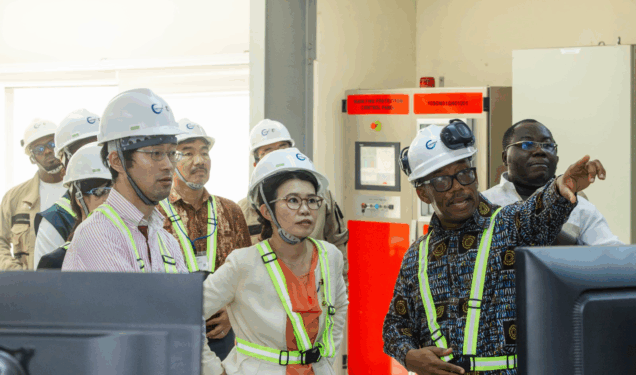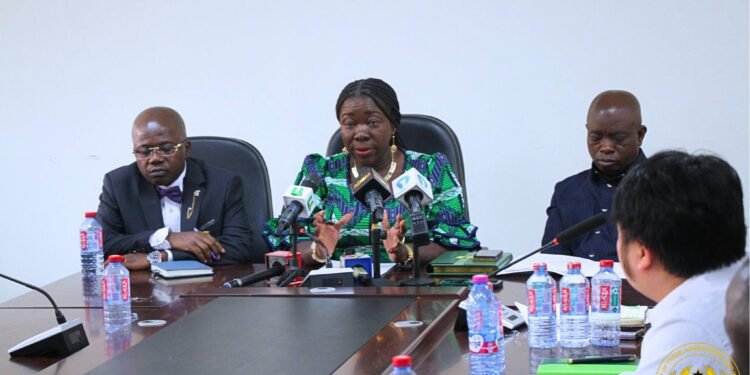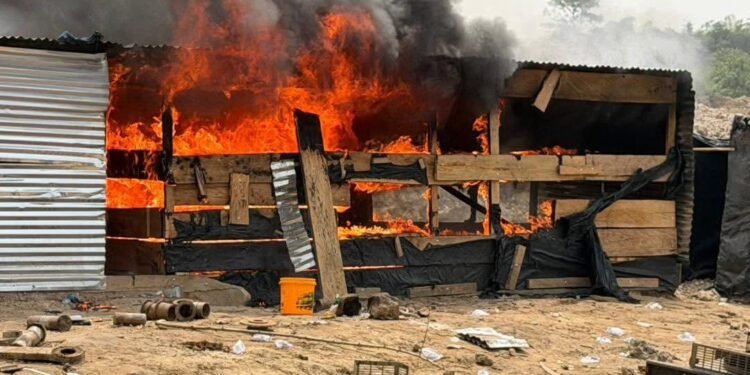The International Monetary Fund (IMF) has pledged its commitment to increase its budgetary allocations to institutions tasked with the mandate of fighting corruption in the country. According to the Fund, Ghana has a strong legal and institutional framework to combat corruption, but challenges remain.
“On governance, the authorities stressed their commitment to increased budget allocations to institutions mandated to deal with corruption”.
IMF
The IMF highlighted that the country performs comparatively well in survey-based measures of governance and control of corruption. The relatively strong performance, according to the Fund, is as a result of a vibrant civil society in the country.
However, the IMF indicated that there is scope for increasing the effectiveness of the anti-corruption regime. The Fund noted that Ghana needs to address the governance issues highlighted in the Corruption Risk Assessment (CRA) report. Also, it calls for a better coordination of the work of the various related agencies and entities.
Other areas of concern
In this regard, the Fund cited the 2020 probe of the former Auditor General (AG) by the Economic and Organized Crime Office (EOCO) as one example. Also, it noted that the lack of support of the Board of the Audit Service towards the AG “raised concerns on the credibility of the anti-corruption framework”.
Nevertheless, the IMF stated that the government is optimistic that its digitization agenda will help fight corruption in the country. According to the Fund, government believes that its digitization drive can help formalize the economy to a higher degree. That will also help improve government service delivery. All these are means of reducing the human interface, hence minimizing the incidence of corruption.

Despite the risk of corruption, the Fund noted that the country remains very attractive to foreign investors. Moreover, the IMF stated that the government is hopeful that its CARES program will consolidate private-sector investment into productive sectors of the economy.
“…Recent moves by technology firms like Twitter and Google to set up an operating base in Ghana is testament to the investor-friendly climate of Ghana over peers in the sub-region”.
IMF
Corruption Perception index
Ghana has consistently scored low marks on the Transparency International’s Corruption Perception Index (CPI). In 2018, Ghana ranked 78th out of 180 countries, and then slipped two positions to occupy the 80th position in 2019. That indicated that citizens’ perception of corruption in the country has gone up between 2018 and 2019. Whilst, the 80th position may seem a little okay, an overall score of 41 raised some concerns.
Luckily, Ghana’s score a year later improved as the country ranked 75th out of 180 countries and territories on the 2020 CPI. With a score of 43 out of 100 points, Ghana improved on its 2019 ranking by five places. This raises some hope, suggesting that the country is making some progress in the fight against corruption.
Nevertheless, Ghana’s score still remains very low compared to some African countries. In Africa, Seychelles maintained the highest ranking with a score of 66 in 2020. Other countries with high scores on the continent are Botswana and Cabo Verde with 60 and 58 respectively. Meanwhile, at the bottom of the index are Sudan, Somalia and South Sudan.
According to the Ghana Integrity Initiative, Ghana loses close to US$3 billion to corruption annually. This robs the state of funds that could have been channeled into developmental projects to improve the lives of the citizens.
READ ALSO: Post-Enumeration Survey to assess the accuracy of the PHC results- GSS






















